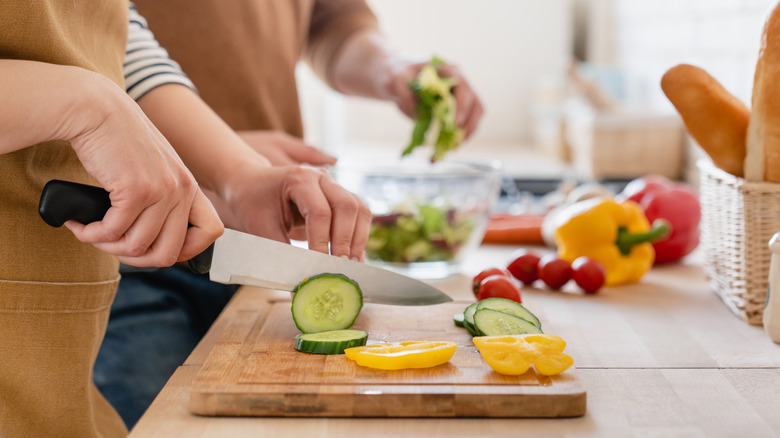How To Make A Recipe Your Own, According To Jacques Pépin - Exclusive
Over his decades of experience in the culinary world as a television personality, famed chef, and celebrated cookbook author, Jacques Pépin has made innumerable contributions to the way home cooks worldwide think about preparing food in their kitchens. In celebration of his latest cookbook, "Cooking My Way," Jacques Pépin joined Tasting Table for an exclusive interview to discuss his favorite time-honored recipes — as well as to share guidance on how to turn an established recipe into your own creation in the kitchen.
Pépin's advice begins with the idea that to master a recipe, you must first learn to follow it, replicating it several times to understand how the recipe works, how the ingredients cooperate with one another, and what you like (or don't like) about it. "I usually tell people: When you do a recipe, whoever you take the recipe from, you should do it exactly the way it is [written] without changing it," he told us. "If it happens to be good, you're likely to do it again. The second time, you may do it again according to the book."
It's only after you've become well acquainted with a recipe that he says you can start to change it effectively and infuse your own perspective into the dish. "By the third or fourth time, you [can] start changing it and massaging it to your own taste and your own sense of aesthetic," he said.
Infusing your own aesthetic
The benefit of following Jacques Pépin's recommendation for mastering a recipe before altering it is that you'll become accustomed to how the recipe was designed to work — and by then, you'll likely also have learned what you'd like to change about it and what you need to do to alter the recipe accordingly. "A year later, you may have done that recipe 10 times — you don't even remember where it comes from," Pépin said of the process. "Now it's your recipe, you did it — you massaged it enough so it's yours."
Learning to use recipes as a source of inspiration rather than as an exact guide not only fosters creativity in the kitchen but also enables you to easily substitute ingredients based on what you already have on hand — most notably, leftovers. Pépin regularly follows this culinary technique in his home kitchen to repurpose everyday ingredients, transforming them into meals that are affordable, easy, and delicious. For instance: "[If] I have some leftover bread, which often I have ... I cut it into little pieces and soak it with a bit of milk to soften it and add an egg to it and some herb and some onion, maybe garlic," he said. "You can do a beautiful pancake with that in a skillet. It's cheap. It's delicious. You can serve that by itself or with a bit of sour cream or whatever."

